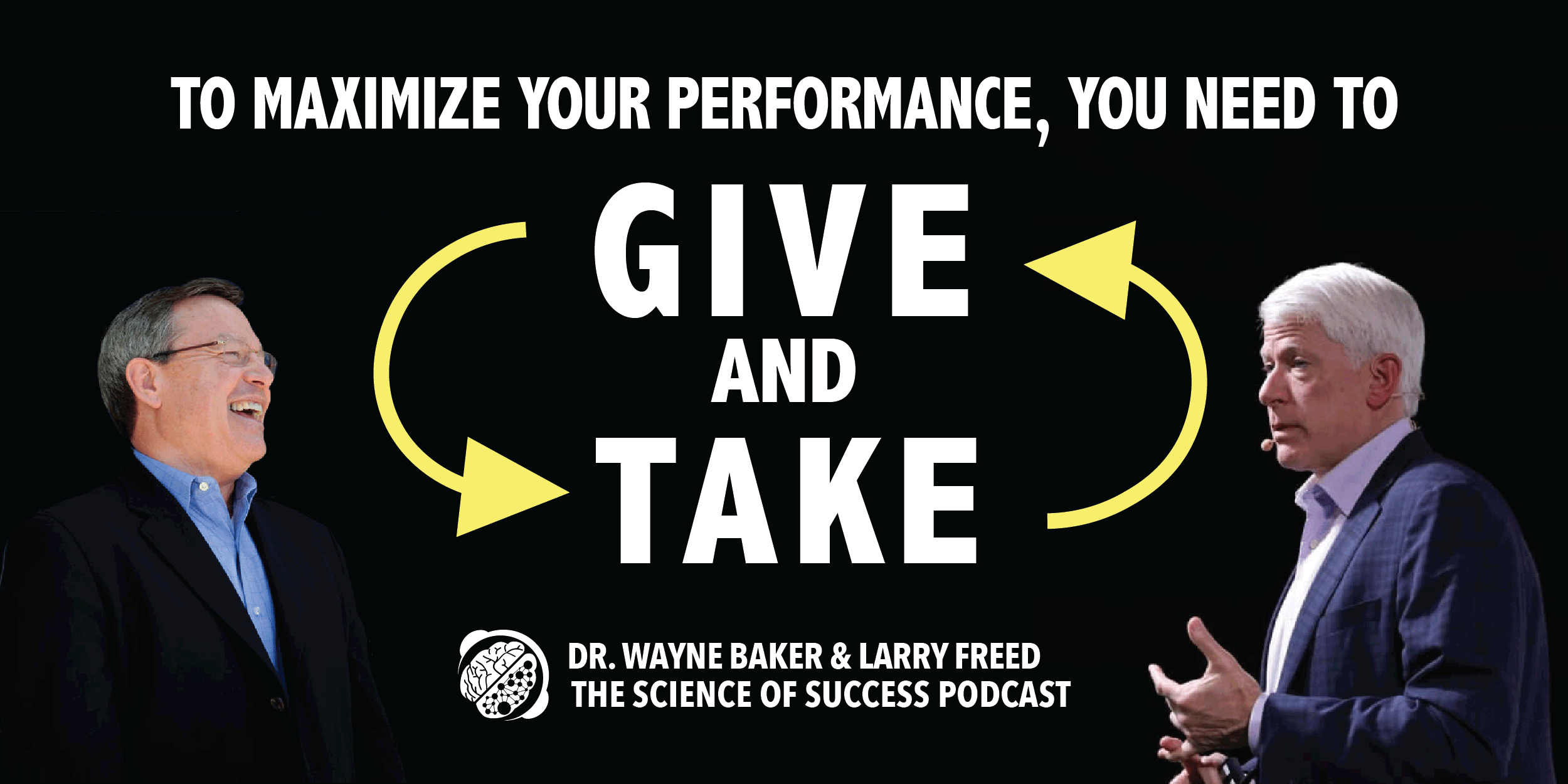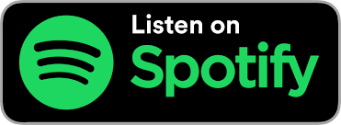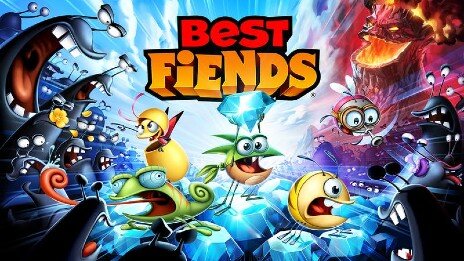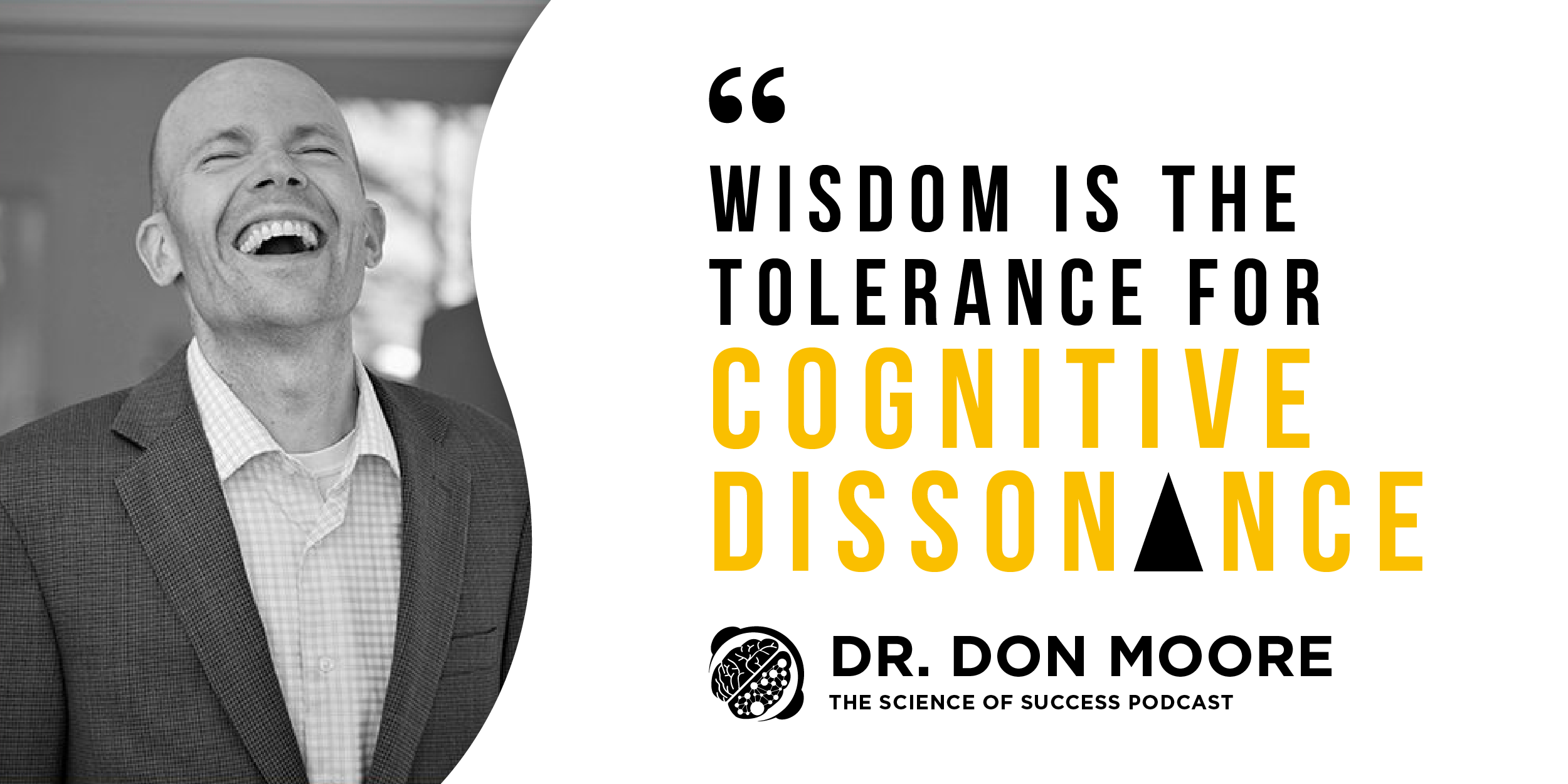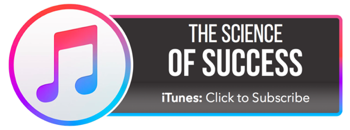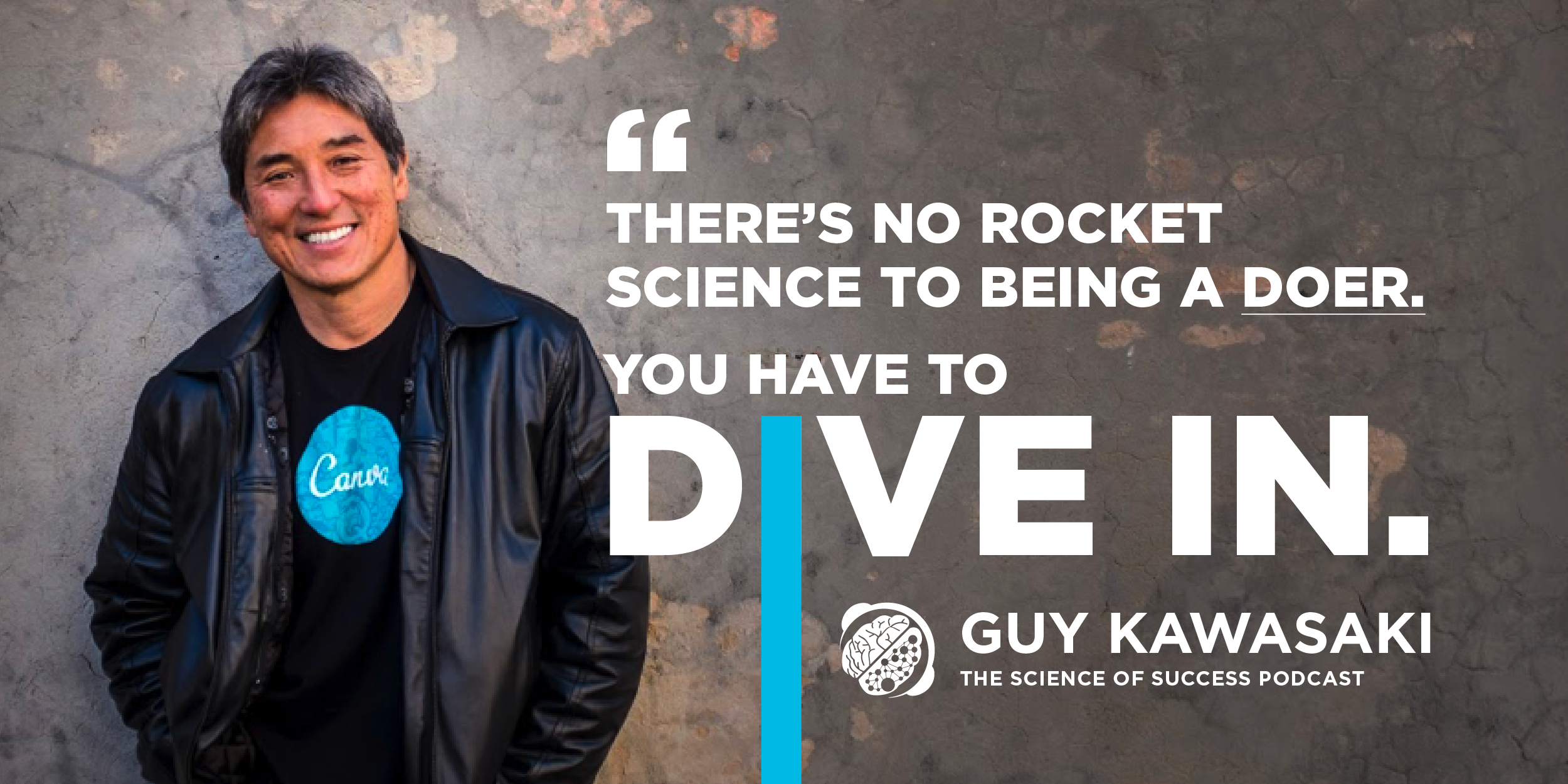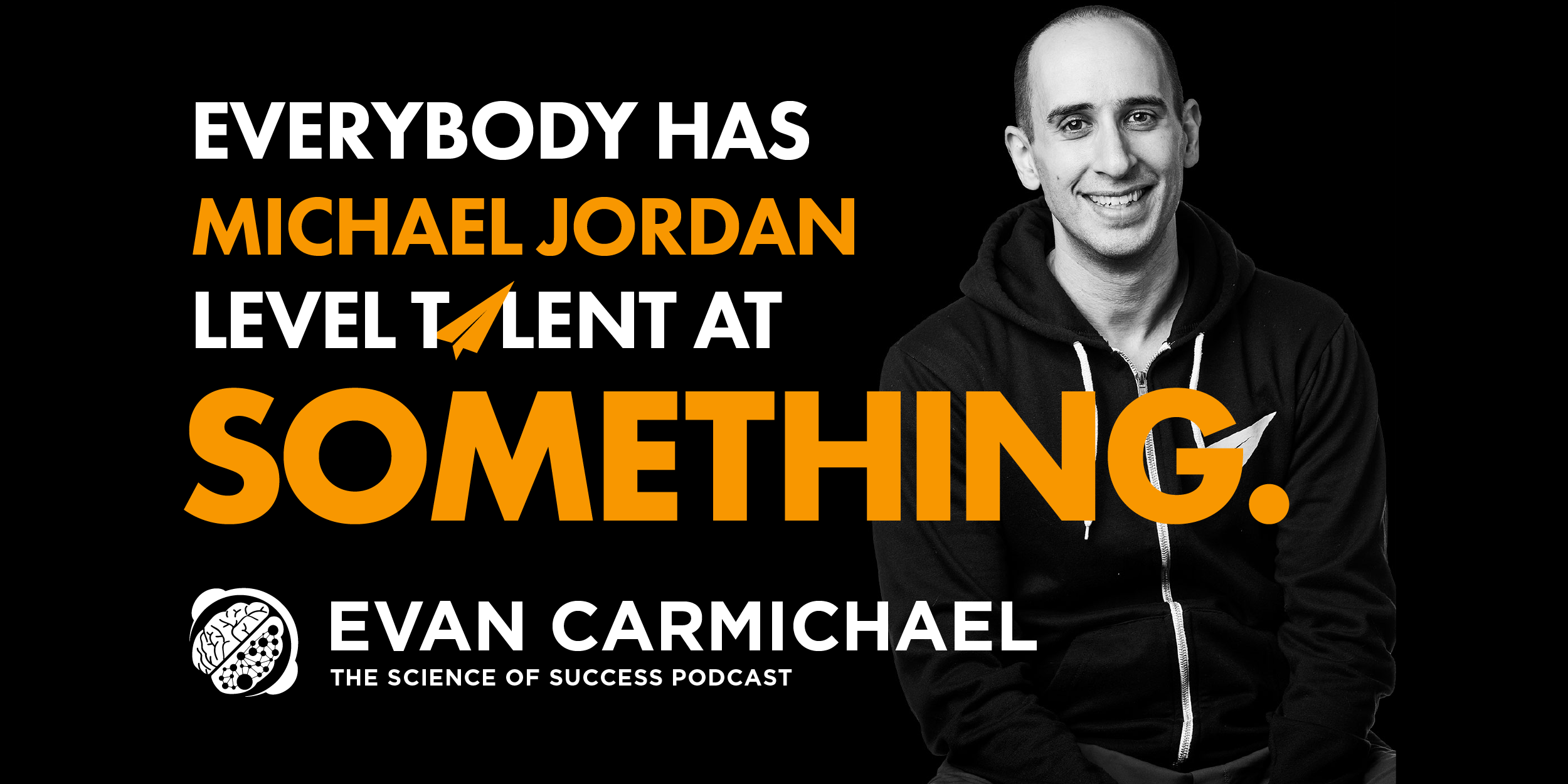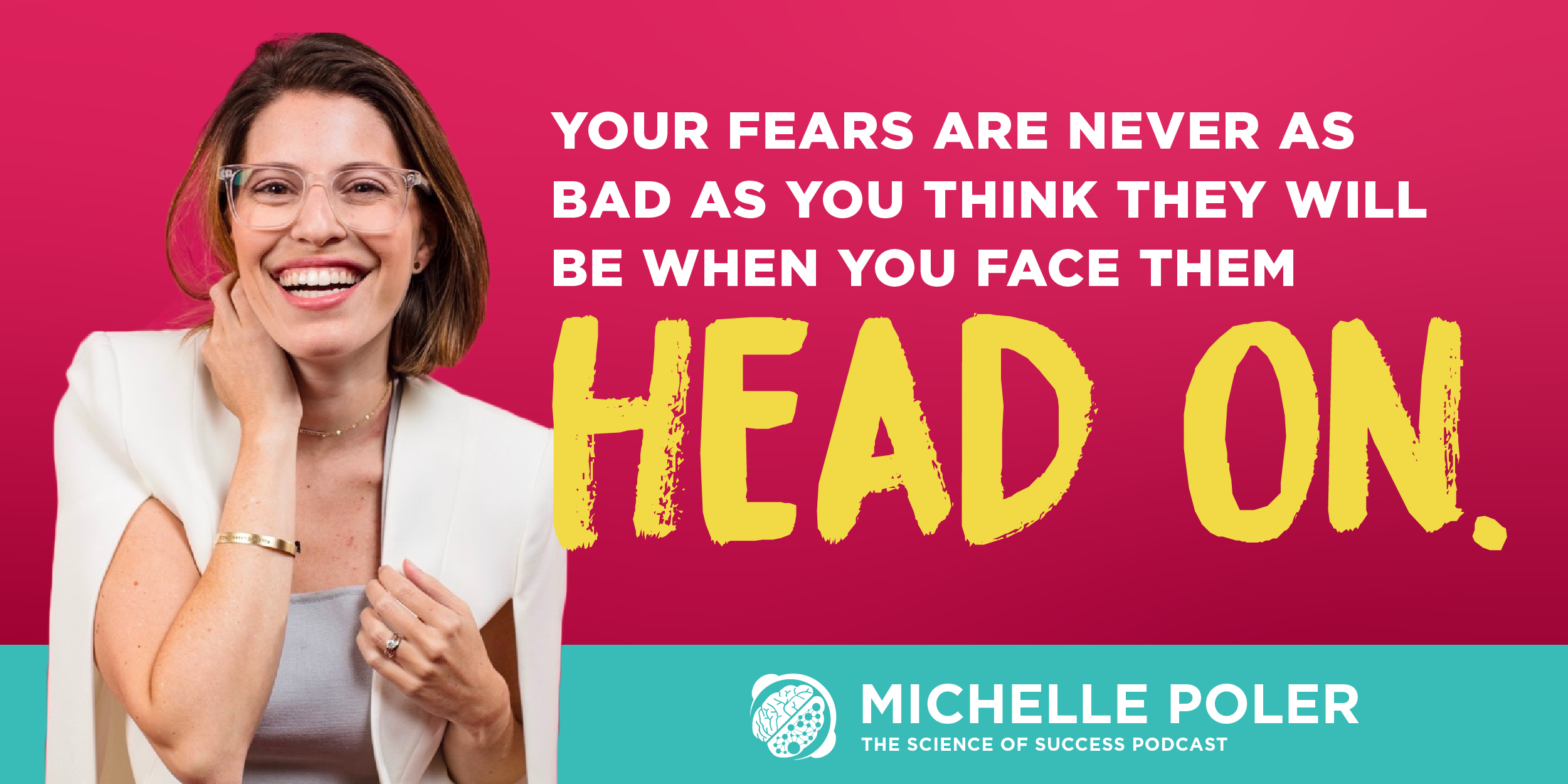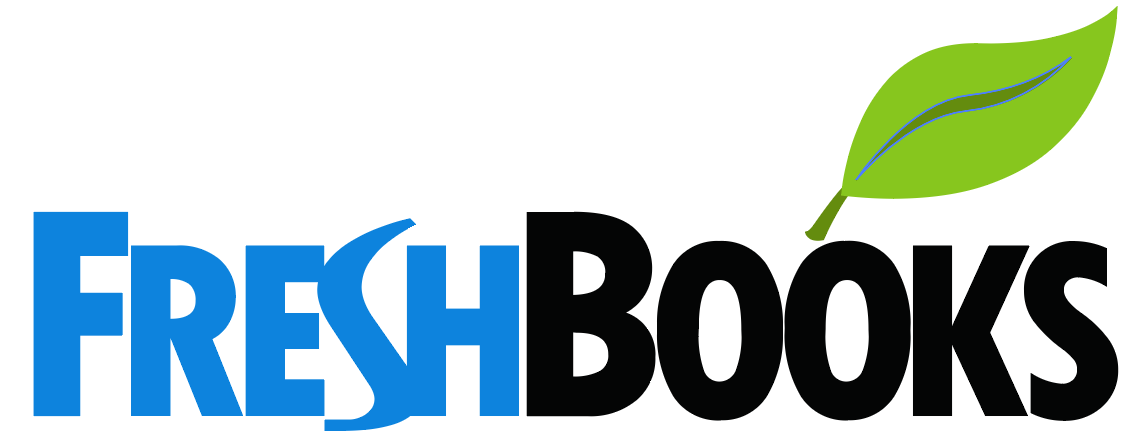(B) Leadership is Caught, Not Taught with Scott Shay
In this wide-spanning conversation, we discuss the founding of a multi-billion dollar public company, the inside baseball of what it takes to build a truly massive company and then we dig into some of the biggest questions in life - how do we deal with the problem of evil? How do we merge science and spirituality?
Scott A. Shay is a businessman and thought leader. He co-founded Signature Bank of New York which has been named one of the best banks in New York for private business owners. He is the author of the best-selling and critically acclaimed books Getting Our Groove Back and most recently In Good Faith: Questioning Religion and Atheism. Scott gives frequent talks around the country and has worked with many media outlets such as the WSJ, Forbes, CoinDesk, and many more!
Success is always a journey, and you have to leverage your past experience.
Being the first person on either side of his family to go to college, then Scott went on to work on Wall Street and in Private Equity
Starting a business with no deposits, no clients and
Zero to public in 34 months without any acquisitions.
The most important thing in business is having partners who can do things better than you ever can, partners who can solve your weaknesses, and do the things you can’t do.
How do you solve a lack of expertise when starting a new business?
You have to know what you don’t know, if you don’t you’re in big trouble
How do you find business partners when starting a new business?
Scott saw that an acquisition was going to cause some friction for several bankers that he knew, and proposed a partnership to them
You can recover from almost anything in business, except for having the wrong partners.
3 partners, then first few key hires - then leverage everyone's network to bring in the best possible hires across the board.
Scott spent a tremendous amount of time getting to know deeply the people that he wanted to hire.
How do you think about capitalizing a business when you are starting up?
Expand your network as far as you can - in a way, it’s ALL about your network.
It’s not all about who YOU know, it's all about who the people you know, know
How do you raise 42mm with zero customers?
Having a great team and great business partners helps raise capital.
How do you think about hiring and recruiting the right cultural fits for your business?
“Leadership is caught, not taught"
Surrounding yourself with good people is the best way to learn leadership
Culture hack: CEO calls every employee on their birthday.
How do you decide when to learn something vs bring in a partner to solve it?
“I’m a big believer of focus”
“There’s no limit to how far any team can soar if no one cares who gets the credit."
With your business partners - disagree behind closed doors, and have a unified front for the company.
The philosophy of “Continuing emergency”
How do you make tough choices between opportunities that all seem exciting or compelling?
The importance of being radically truthful with yourself
The only time you’re truly happy is when you’ve harmonized your day with your purpose.
How do we use spirituality to make better decisions?
How do we grapple with the problem of evil?
A holocaust survivor’s perspective on the problem of evil.
Homework: Live by the golden rule. Don’t do unto someone else what you wouldn’t want done unto you.
Thank you so much for listening!
Please SUBSCRIBE and LEAVE US A REVIEW on iTunes! (Click here for instructions on how to do that).
Are you hiring for your business or next big project?
LinkedIn Talent Solutions is here to help and make hiring the right person simple, powerful, and easy!
LinkedIn goes above and beyond. Screening not just the hard skills you need but soft skill as well to find the right person fast!
LinkedIn looks at things like collaboration within a team, creative skills, adaptability and much much more! That’s how LinkedIn makes sure your post get in front of the right people at the right time to all your needs without all the typical hiring headaches.
It’s no wonder great candidates are hired every 8 seconds on LinkedIn!
Right now, LinkedIn is offering Science of Success listeners their first $50 on the Talent Solutions platform absolutely free! Just go to www.linkedin.com/success to find the right candidate for your project today!
Want To Dig In More?! - Here’s The Show Notes, Links, & Research
General
Signature Bank Wiki Page
Media
Scott’s full directory of News|Articles|Podcasts|Interviews
Wall Street Journal - “The Fed’s Libor Replacement Would Shackle Small Banks” by Scott Shay
CoinDesk - “Facebook’s Libra Cryptocurrency: Bad for Privacy, Bad for Competition” by Scott Shay
Forbes - “Signature Bank Beats JPMorgan To Ethereum-Based Token Services” by Benjamin Cirus
LinkedIn - “Fix corporate taxes by tying them to American workers” by Scott Shay
Chicago Jewish News - “CHICAGO NATIVE’S NEW BOOK LOOKS AT WISDOM OF TORAH FOR TODAY…” by George Castle, Special to Chicago Jewish News
Crains New York Business - “New York's most successful bank” by Aaron Elstein
[Podcast] Fascination Street - Scott Shay – Bank Founder (Signature) /Author (In Good Faith) (released Feb 3, 2020)
The Comeback Game w/ Barry Magliarditi - Faith and Ethics in Business: Surviving the Holocaust and Living a Fulfilling Life with Scott Shay
[Podcast] Your Personal CFO - Co-Founder of Signature Bank: Scott Shay!
[Podcast] Jew You Should Know - Episode 090 - The Signature Bank Founder & In Good Faith Author: A Conversation with Scott Shay
Videos
Scott’s YouTube Channel
TEDx Talks - More Banks, Fewer Problems: Scott Shay at TEDxWallStreet
Talks at Google - Scott Shay: "In Good Faith: Questioning Religion and Atheism" | Talks at Google
Liquid Lunch TV - The Economy with Scott Shay Chairman and CEO of Signature Bank
Undone Redone - In Good Faith — Scott Shay | Undone Redone Webcast
Charney Media - Scott Shay Presentation | The Rise of New Diplomacy
Fox Business - Why banks should continue reporting quarterly figures
Jewish National Fund - JNF Entrepreneurs: A Conversation with Scott Shay
Books
In Good Faith: Questioning Religion and Atheism by Scott A. Shay
Getting Our Groove Back: How to Energize American Jewry by Scott A. Shay
Episode Transcript
[00:00:04.4] ANNOUNCER: Welcome to The Science of Success. Introducing your host, Matt Bodnar.
[0:00:12.1] MB: Hey, it’s Matt. I’m here in the studio with Austin. We’re excited to bring you another business episode of the Science of Success. We just launched Season 2 of our business episodes. If you want to learn more about what these are and why we're doing them, be sure to check out the Season 2 teaser that we recently released. With that, Austin, tell us a little bit about how these episodes are different than our traditional Science of Success episode.
[0:00:36.0] AF: Yeah, It's important to note that you're still going to get all the great contents you've come to know and love from the Science of Success every Thursday. These are bonus episodes with added value, specifically centered around business. We've interviewed some true titans of business and multiple industries from multiple walks of life and what we're going to focus on are the habits, routines and mindsets that made them successful titans that they are today.
That said, these are lessons, routines, stories, best practices that anyone can learn from and apply to their life. You don't have to be a business owner. You can be an employee. You can be a student, or you can of course be a business owner. Come check them out. You're going to come away with a ton of valuable takeaways, but we do have a bit of a business focus on these specific business episodes in Season 2.
[0:01:19.3] MB: With that, let's get into the episode.
[0:01:22.9] MB: Welcome to the Science of Success; the number one evidence-based growth podcast on the Internet with more than five million downloads and listeners in over a hundred countries.
In this wide-spanning conversation, we discussed the founding of a multi-billion dollar public company, the inside baseball of what it takes to build a truly massive business and we dig into some of the biggest questions of life, including how do we deal with the problem of evil and how do we merge science and spirituality?
On top of that, my co-host Austin will be joining us for this interview.
Are you a fan of the show and have you been enjoying the content that we put together for you? If you have, I would love it if you signed up for our e-mail list. We have some amazing content on there, along with a really great free course that we put a ton of time into called How To Create Time for What Matters Most In Your Life. If that sounds exciting and interesting and you want a bunch of other free goodies and giveaways along with that, just go to successpodcast.com. You can sign up right on the homepage. That’s successpodcast.com. Or if you’re on your phone right now, all you have to do is text the word smarter, that’s S-M-A-R-T-E-R to the number 44-222.
In our previous episode, we shared how to ask for what you want, get the help you need to succeed and look at the evidence-based lessons for how you can get more of what you want in your life with our previous guests, Dr. Wayne Baker and Larry Freed.
Our guest today will be Scott Shay. He co-founded Signature Bank of New York, which has been named one of the best banks in New York for private business owners. He's the author of the best-selling and critically acclaimed books, Getting Our Groove Back and most recently, In Good Faith: Questioning Religion and Atheism. Scott gives frequent talks around the country and has worked with many media outlets, including The Wall Street Journal, Forbes and many more.
Scott, welcome to the Science of Success.
[00:03:22] SS: Hey, it's a pleasure to be here with you today, Matt.
[00:03:25] MB: Well, I'm so excited to have you on the show today. You have a fascinating journey and some really good perspectives on some very timely questions. I want to start out with your own journey, your own experience. Tell me about the founding of Signature Bank and how your career led you to that point.
[00:03:45] SS: Well, it's always a journey. You have to be prepared with everything that you've got from behind you. I started out, I'm an unlikely person to have founded a bank. I started out, I'm the first person on either side of my family to have attended college, but I made my way to Wall Street. I worked for Salomon Brothers. Then I joined Lou Ranieri in the private equity world.
During the 90s, I kept having this feeling that the banks in New York at least, had grossly over consolidated. You used to have JPMorgan, Chase, Chemical, Manny Hanny, Trust Company, Westchester, Long Island Trust, Greater New York Bank, Greater New York Savings Bank. It goes on and on. About 19 banks today are part of JPMorgan Chase. That's not a knock against them, but I quickly came to realize that the big banks were awfully good at mass market, because they have the economies of scale to have vast retail chains. They were good at dealing with companies like Verizon and IBM and PepsiCo, but I thought there was this huge niche, more than a niche of companies in the middle who really needed specialized banking.
I had this crazy idea to start a new bank. I wanted to start a new bank, because I didn't want to be beholden to the culture of any existing organization. I managed to persuade two people who I knew who thought I was literally crazy to try to start a new bank. They thought I was just – They humored me. They liked me, so they humored me. Ultimately, I convinced them.
We started our bank, Signature Bank, May 1st, 2001 with no deposits, no clients, no nothing. We got 42 and a half million dollars in capital from Bank Hapoalim. Now 18 and a half years later, we are a 50 billion dollar bank. We broke even after 21 months, we went public after 34 months and we did it all without any acquisition.
Every client of Signature Bank came in the bank because they wanted to. We didn't acquire any clients as it were. We didn't acquire any banks and say, “Oh, you were a bank of Bank X, so now you're our client.”
It's been an amazing journey. Oh, by the way, we had a financial crisis in the middle for the entire United States. Signature, I should say, never had a financial crisis. We're the only bank in the United States above 4 billion that did not have a single down year during the whole mortgage mess.
[00:06:33] MB: So fascinating. There's a number of questions I have around that. Just starting out, how did you think about – you had some experience with Wall Street, private equity, etc., but not necessarily experience owning, operating and running a bank. How did you think about that lack of experience, or lack of expertise and did you view that as a hindrance, or did you view that as an advantage and how did you solve that question?
[00:06:53] SS: The most important thing to me is having partners who do things better than you ever could in the areas that you are less experienced. I would not have tried to start this bank, but for working with John Tamberlane and Joe DePalo, who are my partners and very close friends. Because I knew there was stuff I didn't know, and I knew that they could do those areas better. For example, I did feel pretty good that I was able to deal with the asset liability management. I have a pretty strong credit background. I'm chairman of our credit committee and I know a lot of people. I could help bring in clients.
I knew I didn't know how to run the operations, the back-office operations of the bank, to deal with all of the huge number of front office operation issues of a bank. If I hadn't found Joe and John, there wouldn't be a Signature Bank today. You have to know what you don't know. If you don't, if you can't identify what you don't know, you're in trouble before you begin.
[00:08:09] MB: How did you think about finding your two partners? Did you know them from your network? Did you seek them out? Did you poach them from competitors?
[00:08:18] SS: I knew them from my network in this way. I was a client of Republic Bank of New York and I was in the private equity world. I didn't know a lot of bankers. I thought about who the best ones would be to join in doing this. I have to tell you, in 1999 I was looking at my Bloomberg in the morning and I saw that HSBC was buying Republic Bank of New York. I knew Joe and John worked there and I knew them well enough. They weren't close friends. I mean, I knew them from the business world, but I knew well enough at that time that they would be unhappy working for a multi-national bank. I knew that. I was sure of that.
I remember thinking, “Boy, this is a great day. I'm going to get on the phone and call them.” I did make contact with them through someone else I knew, actually. I thought that was a better way, a more discreet way and I said, “Let's have breakfast.” And we did. I explained that I thought we should start a new bank. They did think I was a little crazy. I explained why and then we got together again and they still thought I was crazy.
By the third and fourth time, they didn't think I was crazy anymore. Not only that, they were really, really interested. My view though is your partners have to be the right partners, because you can recover from almost anything in business, except for having the wrong partners. If you get the wrong partners, it's unrecoverable. It's the end of whatever you're trying to do, an adventure. You have to start over.
That's why to me, having the right partners was so important. As we interviewed the first people who joined us, because once we started with the – once we had three, we quickly became five. Then we were relying on all of our networks for hiring other people. Even though we did that, we met so much with the folks who we brought onboard, because I knew and we knew that every single hire was absolutely critical.
I think people probably thought we were interviewing them for marriage or something, or for brother-in-law, because we spent so much time, and sister-in-law should I say; brother and sister-in-law. We spent so much time in those early days making sure that everybody was unanimous, that they could work with everybody who came onboard.
[00:10:51] MB: That's a great piece of advice. I love that quote about being able to recover from almost anything, except for the wrong partners; really, really insightful. I'm curious. You talked about building the early team. How did you think about capitalizing the business initially? Did you raise capital? If so, how did you do that?
[00:11:11] SS: That's actually a great question, because I thought a lot about that. I don't get that question very often. I was in the private equity world and I thought – I more than thought. I was highly confident to use that hackneyed phrase, that we could raise good private equity and that indeed if we did so, that the founders could have a greater share in the ownership. If you remember back in those days, FDIC insurance only went to $100,000, goes to $250,000 now, but it went to a $100,000. We were going to start – We were a small bank starting out with no clients.
Our first months, for example, we lost over 2 million dollars a month. I mean, we had no revenues, so all of this operational cost was money out the door until we could get in deposits and breakeven, which we did very fast, but there was no guarantee we were going to be able to do that. I thought and we thought that we needed a strong backer, so that when we went to middle-market clients, because most middle-market clients had virtually all of them would deposit more than a $100,000 and many of them would deposit more than a million. They needed to have the sense that we were a stable bank, or that we had stable back. That's why I approached in this case, I was in the board of Bank Hapoalim, and Bank Hapoalim after thinking and listening to us, agreed to put in that first 42.5 million dollars.
They subsequently put in another 150 million dollars as we were growing. They came in, brought in like $6, $7 a share and they exited, by the way, less than five years later and we are now an independent public bank and nobody would care at that point, because we had our own access to capital, we were profitable, etc.
We turned down the ability to have a bigger ownership slice, a far bigger ownership slice and started life as a 100% owned by Bank Hapoalim in order to make sure that the bank thrived. With 20/20 hindsight, I still think we would have made it had we been – had private equity ownership, but there is no way we would have been a 50 billion dollar bank and I don't think there's any way we would have been a 25 billion dollar bank today had we not been long-term greedy for the organization, as opposed to try to figure out how to have the biggest slug of ownership in the shortest period of time.
[00:13:51] MB: Really interesting decision calculus. Did you view them as primarily, essentially a strategic investor? How did that relationship come about? Was that somebody in your network? Did you approach them cold? The reason I'm asking is especially for somebody who's listening, to think about raising money the – I don't think most people would go, “Hey, I'm going to start a business,” and then they raise 42 million dollars on their first slug. I'm curious how to translate some of those lessons into people's experience who may not have had the network of connections that you have.
[00:14:22] SS: Well, first of all, it's important to expand your network as far as you can, because in a way it is all about network. It's frequently not all about who you know, but people who – the people you know know. The one step removed is huge. In this case though, it was a direct contact. I was on the board of Bank Hapoalim, which I had been appointed through my experience in private equity. I did have the direct relationship to make the ask directly.
When you think about it, just as you said, it's not every day that people invest – that any bank, or any one invest 42.5 million dollars in a startup. That's a lot even today and this is 19 years ago.
[00:15:15] MB: Totally makes sense. What do you think gave them the confidence to make that big investment in you and the firm, especially when you still had either few, or even no clients?
[00:15:26] SS: Well, that's also a great question. I think they had confidence in the team. They didn't say yes immediately. I mean, there was a long courtship period. They also would have greatly preferred had we bought a bank. I mean, they spent a lot of time trying to convince me, “Yes, let us back you. We will back you, but buy a bank. Let us invest in something that is at least making some money and then build it from there.”
This was a great, I would say impediment, but it was certainly a large source of discussion, because I definitely didn't want to go that route and they did. It took a lot of convincing on my part in this case. I think even at the end, they weren't so sure about not going the route of buying another bank, but we had spent enough time and showed them enough about how we would execute our plan. We did have the right people. Between Joe, John and myself, we did have all of the expertise that we needed. I mean, not that you have all that you need, but we had the major is plugged and the people who we brought on, they had the other areas plugged.
Given that Bank Hapoalim were bankers, they knew that we weren't blowing smoke at them. I mean, we couldn't blow smoke at them. They knew enough that you could add – and they did ask the fifth order question. We could still answer it and say, “This is what we're going to do.” That gave them comfort, I think. By the end, I think they thought we had and you've talked about this in some of the other parties, I think in your podcast, I mean, they understood that we had real authority. Not any psychological authority, but really, we knew what we were talking about. We had a serious plan.
I think they came to the conclusion not too long later that we were right, because they could have pulled the plug at any point. I mean, they could have said stop growing, but they put another 150 million dollars in the bank.
[00:17:40] AF: Scott, I'm curious. This is Austin jumping in here. How are we doing? This has been a fascinating conversation so far and I'm curious too, how do you look at leadership and then finding leaders that are a fit for your organization? You mentioned in the initial hiring periods, it was like interviewing a family member, someone that likes to become a family member. Now scaling up to over a 1,000 employees, it's obviously critical that you have the right leaders in the right seats in the right locations managing these things to ensure culture and leaderships maintain.
How do you look at finding leaders in your organization, or people you want to bring into your life? A dovetail of that would be what essential qualities and leadership do you find are most commonly overlooked by others?
[00:18:26] SS: Well, I would say this, first of all, I'm a big proponent that leadership is caught, not taught. There's lots of classes in it, but surrounding yourself with good people who you can learn from, I think it's the best way to learn leadership. Then recognizing that if you are a leader, other people are watching you very closely and they're taking their cues from you.
I think when I talk to someone, or I'm hoping will be one of the leaders in the business, I'm looking for real authenticity. I'm looking for someone who I think I would be comfortable with being in a foxhole with, who I think would have my back and I would want to have their back. That's a pretty difficult to quantify characteristic. That's why I think you have to spend so much time with people if you're really going to bring them in at a partnership, or leadership capacity.
I think that the other important thing in leadership is having every single person in the organization, in this case at the bank, understand that they are part of a team. There are no dispensables. Everyone is indispensable and every role is indispensable and that the entire organization relies upon each and every other colleague. I started doing something like that.
I'll tell you, when we first had five people, we had 25, we had 50, a 100, up to about 150, I essentially knew everybody's story. I couldn't have told you everything about them. I don't know and didn’t remember everyone had, but I more or less knew everyone's story. Then after 150, I wasn't able to do that anymore, I realized. I think that's the natural – there is a natural number that that's about – that sociologists say that can be part of your – social psychologists say can be part of your standard, reliable network.
As we got to 250, 350, I recognized I needed to do something that would keep me in touch with everyone. I started calling everyone on their birthday. Even today, we have 1,500 employees. I call every single person on their birthday. At least, I have some touch point to every colleague here. I started doing it and I didn't know how it would become at a certain point, it would actually become a thing. It would consume time. I think it's important, at least for me personally, it's my indicator and it's one of the only ways I know how to do to make sure that everybody knows that I think that everyone here is important.
Even though we're a 50 billion dollar bank, if you are the new teller in New Rochelle, you're important because you're the face of the bank. Whether people are going to be happy or not happy with Signature Bank depends upon you. That may be in a longer answer to your question, but it's something I think a lot about and I think a lot about how to do that, how to show and model and mirror leadership every day.
[00:21:54] AF: That's a great answer and some of the practices you put in place. I mean, obviously your success speaks to how your employees feel working there, because they're all working towards the same goal, there's a lot of buy-in and of course, your growth has reflected that. It's funny, I imagine you've had some interesting birthday conversations calling somebody up and they're like, “Hi, Marge. Scott Shay.” They’re like, “What? The Scott Shay? What can I do for you?” There's got to have been some entertaining instances that have come out of those hundreds, I'm sure of phone calls.
[00:22:22] SS: Well, the first time I started doing it, a few people told me the first time as I was calling people, they would like – the first few people thought I was calling to fire them. I said, “No. Why would I be calling you on your birthday to fire you? No.” Then I realized how much I really needed to do this, because I wanted to have a touch point with everyone.
Now it's no longer urban legend here. I call everybody and I've been calling them for enough years that I've had people actually tell me, “Well, I was going to take off today, but I thought I'd come in so I got your call.” That happens. The other thing that ended up being a really a blessing of this, so in 2008 and 2009, during the heart of the financial crisis, I was still calling everybody on their birthday, of course. But it ended up being from me, a daily survey, a random daily surveys and that just depended on when their birthday was, of the temperature of every employee, every colleague.
“You know, what are you thinking? What are you seeing?” I'd answer questions, actually took more time in those days to talk to people than – It wasn't a perfunctory call. I really wanted to know what people were hearing, feeling, thinking, hearing from clients walking in the door. It ended up being I learned a lot. I also think that people really liked hearing from me during those relatively worrisome days for the country.
[00:23:57] AF: Yeah, that’s so incredible. It’s to grill away of taking the temperature of the people that are really the boots on the ground of your organization and just seeing what morale looks like and just really what everyone’s feeling from what they’re seeing, not only within your organization, but in the people that are coming in and interacting with your bank.
One thing that you’ve said and you’ve been an example of this and everything you’ve said over the past few minutes is this authenticity and something you said earlier was when you met up with Joe and John, you try to find people that knew things that you didn’t know and you said, if you can’t identify what you don’t know, you’ve already lost.
I think for a lot of people that might be difficult, because your ego gets in the way. You feel like you want to do everything. I know a lot of entrepreneurs really have a hard time handing over the keys, so to speak. How do you go about looking at these three things need to be done and I know that I do number one really well. How do you go about analyzing, “Do I find someone who knows two and three really well? Or is two worth me learning to?” Where do you look at something and say, “I’m not going to learn that. I need to find somebody to come in here who's an expert in that and that's going to ultimately make the company stronger.” Versus when you look at something and you're like, “That mildly piques my interest. Maybe I should take the time to learn that and do it myself.” Is there some threshold where you relinquish that control and say, “It's not my wheelhouse,” or versus you saying, “Well, I can learn that and that's something I’d like to learn and do”?
[00:25:23] SS: Well, there's two things. First, it's how long would it take to master something. For me to learn our information technology area, I’d have to check out see in three years to learn what you need to know. On the other hand, I have to have an idea of the overall architecture of our IT environment. That's an easy one, because it's so far out of my wheelhouse that I’m never going to be able to think that I could get into the weeds on that.
On the other hand, there's also bandwidth. You can only do so many things well. I’m a big believer in focus. Some of the things we got to focus on bringing clients in. A bank has to focus on credit. It has to focus on asset liability management. I essentially focused on those areas in a major way. They were all critical and they all required a lot of time. I don't want to say there's never friction between partners on who should be doing what.
If you really have the organization and the company in mind, there's no – you should work those out. One of my mentors over time, Dan Carney many years ago when I was at Solomon Brothers put a – he had a small – he have a lucite. It was a saying. His saying on in a lucite ball on our desks that said, “There's no limit to how far any team can soar, if no one cares who gets the credit.”
[00:27:05] AF: I love that.
[00:27:07] SS: You have to work that out. The other thing is and I would say this is that Joe, John and I, we might have disagreed on things. You should do what other people should do, but we always resolved those in a closed door. Then when we emerged from the work, it’s complete humility to the organization. You wouldn't know who thought what. I mean, I will tell you, it's happened where I thought one way and someone else saw the other, or vice versa. When you went out, you wouldn't know from who was the proponent of what we were doing, who thought what.
[00:27:43] AF: That's so important too, especially when you're trying to accomplish something, like what you were doing. I mean, you and Joe and John, at least to the outside world presenting this united front. The fact that no one could tell who was against or for a certain topic definitely shows that you guys sold it well.
I’m curious too, I was looking through some of the past interviews you've done and something that grabbed my eyes, your philosophy of continuing emergency. What does that mean?
[00:28:09] SS: Well, that was when we started the bank. We had to recognize and I mean, I did for my personal life as well that starting anything is like a continuing emergency. It's a constant fire. It's like being a firefighter and having fires constantly happening. You could barely put your head on the pillow and you'd have to get out and put out another fire. I’ve said that to folks is that if you're not willing to give that devotion for some period of time and it's indeed years, then it's better not to do it. You have to be prepared for your startup to be a continuing emergency. This one was.
Look it wasn't bad either. That's not a complaint and that's not a disappointment, but starting up a company is not 9 to 5. If you want to be able to go to a regular canasta game, or a regular –have a regular softball league, it's really, really hard. You have to put your priorities straight, which is your family as well and your personal health and you're not going to – you've got to be prepared not to do too much else for a good long while. I mean, I didn't, I will tell you. Now I’ve written two books. When we were starting the bank, I was not thinking about writing any books, let me put it that way.
[00:29:35] MB: What if you could hire A players for your business based not just on resume, but on intangible job skills like creativity, resourcefulness, flexibility and even the reviews and feedback of those they've previously worked with? With the power of LinkedIn Jobs, our sponsor for this week, you have all of that at your fingertips and much more, so you can find the perfect person for the job every time.
LinkedIn jobs screens candidates with the hard and soft skills that you're looking for so that you can find the right person fast. Because of the rich data sets and huge collection of talented individuals on LinkedIn, LinkedIn Jobs gets you in front of everybody with the skills and qualifications you want to hire while saving you the time, energy and headache of having to do it all yourself.
Find the right person meant for your business today with LinkedIn Jobs. You can pay what you want and the first $50 is on them. Just visit linkedin.com/success. Again, that's linkedin.com/success to get $50 off your first job post. Terms and conditions apply.
[00:30:48] MB: Really good insight, Scott. I want to come back and drill down a little bit more into something that you touched on a minute ago, which is the importance of focus. It seems like that's such a critical piece of being successful, being an entrepreneur and yet, it's so easy to fall prey to shiny object syndrome, or end up having a dozen opportunities in front of you and wanting to pursue all of them and ultimately, failing and pursuing none of them, or half baking a bunch of them. How do you think about making tough choices between competing opportunities that all seem to be really exciting or compelling?
[00:31:25] SS: Well, now you're getting a little bit and because I think you can't really divorce those decisions, particularly when they affect your personal life, from your spiritual and personal meaning aspect of your identity.
For me, I really take time every day to pray. For some, it's meditation, for some of it’s other things. For me, I have this view that when you pray, you're having a dialogue with the almighty, who knows everything about you. Therefore, you can't use self-deception to hide from the truth. It's as though you're having a conversation with an all-knowing power and there's such a bright light on you and on yourself that sometimes you actually cringe, or from taking that harsh, that clearer look on yourself.
If you do have that time where you are radically truthful with yourself, because you're in an environment where you think that that's what you – you have no choice. It helps you make decisions. Is doing what I want to do, is this venture the right thing for me? Is changing jobs the right thing for me? Am I taking too much time away from my family, or for trying to meet someone and start a family? Is this the right geographic area for me? What am I doing? Am I being asked in my business to do things in my business life that I think are not ethical, ethical? Is this my passion?
See, I think when we're born, that's an act of total grace and that's a great day. Then the other great day in our life, which hopefully continues many times is when we figure out why we're here, what we're supposed to be doing. That gives you your sense of purpose. When you can figure out, “Okay. What am I doing on this planet? What difference am I going to make?” In whatever small way, I think that helps you set your priorities. That doesn't mean you should go and volunteer in sub-Saharan Africa to work with deeply impoverished people.
It may mean you should do something in your personal life that you're not doing. It may mean that you need to change, or adapt your priorities. I’m a big believer in that. I’m a big believer that the only time you're truly happy is when you figure out how to harmonize your day, what you're doing with why you feel you are here on this planet.
[00:34:14] MB: Great advice. I love the focus on radical truthfulness. That's a really interesting mental hack to essentially clear away all the self-delusion that's stopping you from really seeing the situation and yourself really clearly. You brought up a point that we haven't gotten into yet, but is a huge part of your life today and you've written and spoken tremendously about which is how spirituality and religion intersect with all of this. Obviously, you've written several books about that.
This is a hard turn from what we were just talking about, but it's such an important topic. One of the things that I found really interesting was the discussion that you had in your recent book, In Good Faith, around the problem of evil. That's something that I’ve always thought about a lot, struggled with, found to be a really linchpin question for me personally around spirituality. How do you think about the problem of evil and how do we solve that, or how do we think about it in a way that we can really integrate holistically?
[00:35:16] SS: Well, you went straight to the core question. In writing my book In Good Faith, I spoke to a lot of believers and non-believers. In the end, I find that for believers, the hardest question is why is there evil in the world? That's the one question that believers really grapple with and struggle with. I’ve given book –
I have to say, when I was on book tour and going to various cities and having events in great measure, almost always there would be someone who would raise their hand in the Q&A period and say, “Why? I had a brother-in-law, I had a sister-in-law. I had something terrible happened to her, became ill.” In my family, I am the son of a holocaust survivor. My father was a 14-year-old inspectional Lithuanian when the Nazis came. They murdered his father. His mother had already died in childbirth with his brother. They murdered his brother too. They murdered another brother. They murdered his aunts, his uncles, his cousins. I mean, my closest relative because of that was someone who happened to be away, was a second cousin once removed, other than my father. That was his closest relative really.
He was deported for slave labor, then he spent three months in Auschwitz. He was “fortunately,” removed from Auschwitz and moved to another work camp. Then when he was liberated from DACA, he was less than 70 pounds. He weighed less than 70 pounds. He probably would have been dead in days, hours, certainly not more than weeks at the rate it was going. He had the good fortune to be liberated by the American forces. My father's a great American patriot for his life from – nursed and backed out. He ended up settling in Chicago, where he was able to marry and have a son, me.
My father had this very – I don't want to call it – but a particular relationship with belief in God and good and evil, in that he was sure that there was a God, because he knew too many miracles had happened that got him through the concentration camps. I mean, if a glass were sitting on one side of the table as opposed to the other side of the table, he would have been dead. If the smallest, if he would have been one step forward, or behind in line, he would have been dead. I mean, we could have the whole podcast talking just about that, so I’m over-summarizing here, but you get what I mean.
He recognized, or he believed with certainty that God had somehow gotten him through and brought him to Chicago. At the same token, he was pretty angry with God, because at the same time, his father had been murdered in front of him. I mean, again, all of his family had been wiped out, wiped out primarily before they even left [inaudible 00:38:35]. A few made it to the concentration camps, or to get it, but really wiped out.
He had and I talk about this in great detail in the book is that he had a view that evil could exist. There was a lot of human evil in the world. I mean, the Nazis and their willing accessories made the decision to kill people, made the decision to use science and technology to kill people very, very efficiently; murder people. Kill is too nice a term. Murder people.
I think one thing and I write about this in the book, I mean, there's a – one of the books of the bible is the Book of Esther. Some of your listeners may recall when the Jews of Shushan and all of Persia are threatened with extermination, Mordecai appeals to Esther, sends him a note and sends her a note and says, “You've got to go to the king.”
She says, “No, it's risky to go to the king. He hasn't called for me in 30 days. He could not want me and then I’d be executed.” Mordecai says to her, “You know, you may have been put in this very, very place for just this reason.” Then she gets it and she says, “Yes. Fast for three days, I’m going to go to the king. I’m going to do the best that I can do.”
I think that it goes down to there's a lot of human evil in the world, but we can mitigate that. I mean, before the holocaust there were – Hitler at first didn't think he was going to kill the Jews. He thought they would all leave and go other places, but nobody took them in and nobody took in the Rome and nobody took in a whole host of other people who Hitler murdered as well. Had countries and had people been merciful, God would have been merciful. If we're not merciful, if we don't take responsibility, if we don't figure out that we're here to help other people, then it's not that God causes the evil, but God allows it to happen. That's more or less was the philosophy of my father and the philosophy I adapt. We have the ability to mitigate evil big time. The question is, are we going to do it? Are we going to use our resources?
Again, you don't need to necessarily volunteer to work in sub-Saharan Africa. You can donate money. You can work very hard, make money, help people, help people in your day-to-day life. I think that spreads big time. I think when we do the right thing, we get a divine win to our back.
[00:41:23] MB: I think that's a really interesting perspective. For me, especially the question of free will, in many ways can address the component of human evil. The real sticking point or the one that I always reflect on is reconciling the existence of natural evil, disasters and disease and so forth. Does that fit into the same model, or how do you think about that?
[00:41:46] SS: Yep. Well, that's in a way a harder question. I mean, why isn't every volcano like that volcano that exploded in Iceland, which had a lot of ash, grounded flights, but nobody died? Why can't everything be just like that, where natural disasters are mild? No hurricane Katrinas, no superstorm Sandys where people are killed, no tsunamis.
The question there is, I think that and this gets to something we spoke about briefly beforehand, which is science in the bible. I think that the bible makes it clear that God put into place a natural order. If one of our 10th to the 28th power atoms in our body didn't misfire, our trillions and trillions of cells in our body didn't occasionally misfire, then we would recognize that this world was all fixed, that there was a God, there is a God.
The problem with that is that and this goes to your free will question, is that if every time you did something wrong, a lightning bolt came out and either shocked you, or killed you, or just was right beside you and you recognize that if you don't do what God wants, you're going to be electrocuted by this lightning bolt, then you wouldn't have free will. We would all be automatons. There would be nothing special, or interesting about this world, because we'd all just do – good people and bad people would actually behave identically, because there would be no choice.
I think it is radically critical that God be hidden to some degree. That's what enables us to have the space to have free will. I’m saying a lot in a few sentences. I hope I’m conveying that. You're getting it.
[00:43:52] MB: Yeah. No, that's really interesting. It's a great perspective and one that I wish we could explore more deeply, because we could have such a lengthy conversation about this topic, but I know we're starting to run out of time.
For somebody who's listened to our conversation and is really curious about implementing something that we've talked about in some form or fashion, what would be one action step that you would give them to start putting something we've talked about today in practice? It could be a business thing, it could be a philosophical activity. What would you challenge our listeners to take action on to put into practice what we've talked about today?
[00:44:31] SS: Two things. Number one, I would start living by the golden rule, as Hillel formulated it. “Don't do unto someone else what you wouldn't want done unto you.” The rest is commentary. Go learn it. If you take that modest depictation of the golden rule, it will change your life. It will protect you against self-deification and it will protect you against being the victims of other people who self-deify. Live by the golden rule. If you wouldn't want it done unto you, don't do it to somebody else. The world will be transformed by that.
The second thing I would say and this is a little more self-serving, but if people are interested in hearing more, the other action I would say is go to scottshay.com. I have a whole bunch of interviews, podcasts, writings that I’ve written from everything about personal ethics, the ethics of what's going on in the Hong Kong protests, climate change, a whole bunch of things that people can easily access. It's all downloadable. I have a newsletter that's growing as well that I started a few months ago.
The best thing of all would be to read In Good Faith, which is my book, available everywhere at quality bookstores and also at Amazon, and basically any place that sells books. You can get it on Audible. It's coming out in paperback in a couple of months, Kindle, however you'd like to do it.
I will say this too, after people read the book, I get a lot of e-mails. There's a contact sheet on the website. I make an effort to answer all e-mails. I do say this. I do get a good chunk of it. I’m getting them recently of chapter length questions. If you want me to respond, please write me out a couple of paragraph e-mail and I will get back to you, but if it's the size of a chapter, it's just hard to do. I’m available. I encourage people to read in good faith, look at my website. It's all there. It's really all there.
[00:46:44] MB: Well, Scott. Thank you so much for coming on the show and one more time, what is the URL that listeners can find you and all of your work at?
[00:46:52] SS: Scottshay.com.
[00:46:58] MB: Well, Scott. Thank you again. A fascinating conversation. So much more we could have explored. I really appreciate you coming on the show and sharing your story and sharing your wisdom.
[00:47:06] SS: Matt and Austin, it has been a pleasure to be with you today.
[00:47:09] AF: Thanks, Scott.
[00:47:10] MB: Thank you so much for listening to the Science of Success. We created this show to help you our listeners, master evidence-based growth. I love hearing from listeners. If you want to reach out, share your story, or just say hi, shoot me an e-mail. My e-mail is matt@successpodcast.com. That’s M-A-T-T@successpodcast.com. I’d love to hear from you and I read and respond to every single listener e-mail.
I’m going to give you three reasons why you should sign up for our e-mail list today by going to successpodcast.com, signing up right on the homepage. There are some incredible stuff that’s only available to those on the e-mail list, so be sure to sign up, including an exclusive curated weekly e-mail from us called Mindset Monday, which is short, simple, filled with articles, stories, things that we found interesting and fascinating in the world of evidence-based growth in the last week.
Next, you're going to get an exclusive chance to shape the show, including voting on guests, submitting your own personal questions that we’ll ask guests on air and much more. Lastly, you’re going to get a free guide we created based on listener demand, our most popular guide, which is called how to organize and remember everything. You can get it completely for free along with another surprise bonus guide by signing up and joining the e-mail list today. Again, you can do that at successpodcast.com, sign up right at the homepage, or if you're on the go, just text the word SMARTER, S-M-A-R-T-E-R to the number 44-222.
Remember, the greatest compliment you can give us is a referral to a friend either live or online. If you enjoyed this episode, please leave us an awesome review and subscribe on iTunes because that helps boost the algorithm, that helps us move up the iTunes rankings and helps more people discover the Science of Success.
Don't forget, if you want to get all the incredible information we talk about in the show, links transcripts, everything we discussed and much more, be sure to check out our show notes. You can get those at successpodcast.com, just hit the show notes button right at the top.
Thanks again, and we'll see you on the next episode of the Science of Success.






